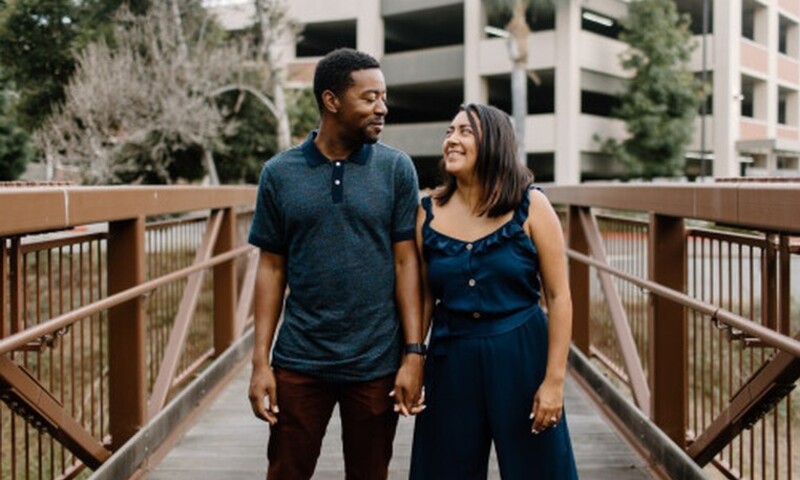Relational v. Transactional Connections

Are your relationships transactional? In today's blog, marriage and family therapist Jennifer Jones discusses the difference between relational and transactional connections and outlines five steps to proactively deepen relationships.
“Before I formed you in the womb I knew you…” - Jeremiah 1:5
For You created my inmost being; you knit me together in my mother’s womb. - Psalm 139:13
Have you ever thought about the fact that God has been in relationship with us—with you—from the very beginning?
Before our parents even knew of our existence, we were created and wired for connection with a relational God, our Heavenly Father. We need relationships to survive.
How often have you heard or said, “We don’t get to choose the family we are born into?”
That is true, but don’t stop there. I encourage you to think about these things:
- What can your experiences as a child of your parents (and/or primary caregivers) reveal to you about how you show up in relationships now?
- What did you learn from your very first relationships about how to be in relationships with others throughout your life up until now?
- Do you find yourself reaching out for connection only when you need something?
- Are there ways you show up in relationships that are learned and no longer serving you well, or reflective of Godly love?
Let me preface the rest of this by noting that no parents (or caregivers) are perfect, and what I’m sharing is in no way a criticism of anyone’s parenting. My intention is to help you think about these matters with curiosity—in a healing manner—for yourself.
If you endured abuse or trauma at the hands of your primary caregivers, you may have learned that relationships are transactional. If you were raised with a sense of entitlement, you may have learned that relationships are transactional. If your primary caregivers were unwell emotionally, mentally, financially, physically, etc., you may have learned that relationships are transactional. These are just a few examples of ways you may have learned to survive instead of thrive in relationships.
If you’re a people pleaser, chances are that somewhere in the history of your life you learned that relationships are transactional. For example: If I’m “good,” I won’t be punished. If I do what so-and-so wants, I will be loved. If I don’t do what so-and-so wants, they will abandon or reject me. Notice the absence of safety and security and the presence of fear and uncertainty.
If any of this resonates with you, and you’ve found yourself in transactional relationships, here’s what I want you to know: Despite your earthly experiences as a child, God created you for a relational experience with Him and with others. For example, when you go to a restaurant or grocery store, the employees have a job to fulfill. But, isn’t it nice when they go the extra mile? Chick-Fil-A, In N Out, and Trader Joe’s understand the importance of relational versus transactional service, and it makes all the difference! You actually want to go back, not just for the food and the groceries, but for the relationship built through experience.
When you think of your current community, are your connections relational or transactional?
Relational connections are rooted, reciprocal, and naturally rewarding. Transactional connections are temporary, self-serving, and taxing on the mind, body, and spirit.
In the same way, Noah built the ark before the storm ever hit,
we must build up and pour into our relationships before we actually need them.
Some people learn how to do this in their family of origin and some learn along the way. Regardless, whether or not we show up in relationships relationally or transitionally is significant as we make every effort to reflect the heart and love of God.
So how do we shift to cultivating relational connections if we learned to be transactional in our relationships? Here are a few ideas to start:
1. Jot down those questions I posed at the beginning of this blog and take some time to reflect, journal (if that’s your thing), and pray about your experiences and how they’ve shaped you. Acknowledging patterns is the first step to making changes.
2. Be clear and consistent in your communication with the safe people in your life, even if it’s just to say, “Hey, how are you,” or, “Hey, I’ve been thinking about you. I hope you’re doing well.”
4. Be flexible. Be kind and give grace in your relationships. Be intentional about not taking things personally, and giving the benefit of the doubt because everyone is fighting a battle we know nothing about (Plato).
3. Be intentional. Instead of just talking about getting together, reach out and put something on the calendar right now! Enjoy connecting with the people in your life. Send an encouraging or thoughtful card to your friend. Reach out and ask a friend what you can do to show up for them this week.
5. Be teachable. In a rooted, reciprocal, rewarding relationship, we should be learning from one another as we continue to grow and change. Set healthy boundaries, but also refrain from putting people in a box—including yourself.
As a therapist and lover of therapy, I would be remiss not to encourage you to try therapy if what’s come up for you in reading this feels overwhelming, or if you’ve noticed it’s been challenging to show up in relationships in a healthy way after attempting to navigate them on your own. It can be so hard to unlearn and relearn how to be in a healthy relationship, and you don’t have to do it alone.
Let’s choose relational over transactional connections every time!


